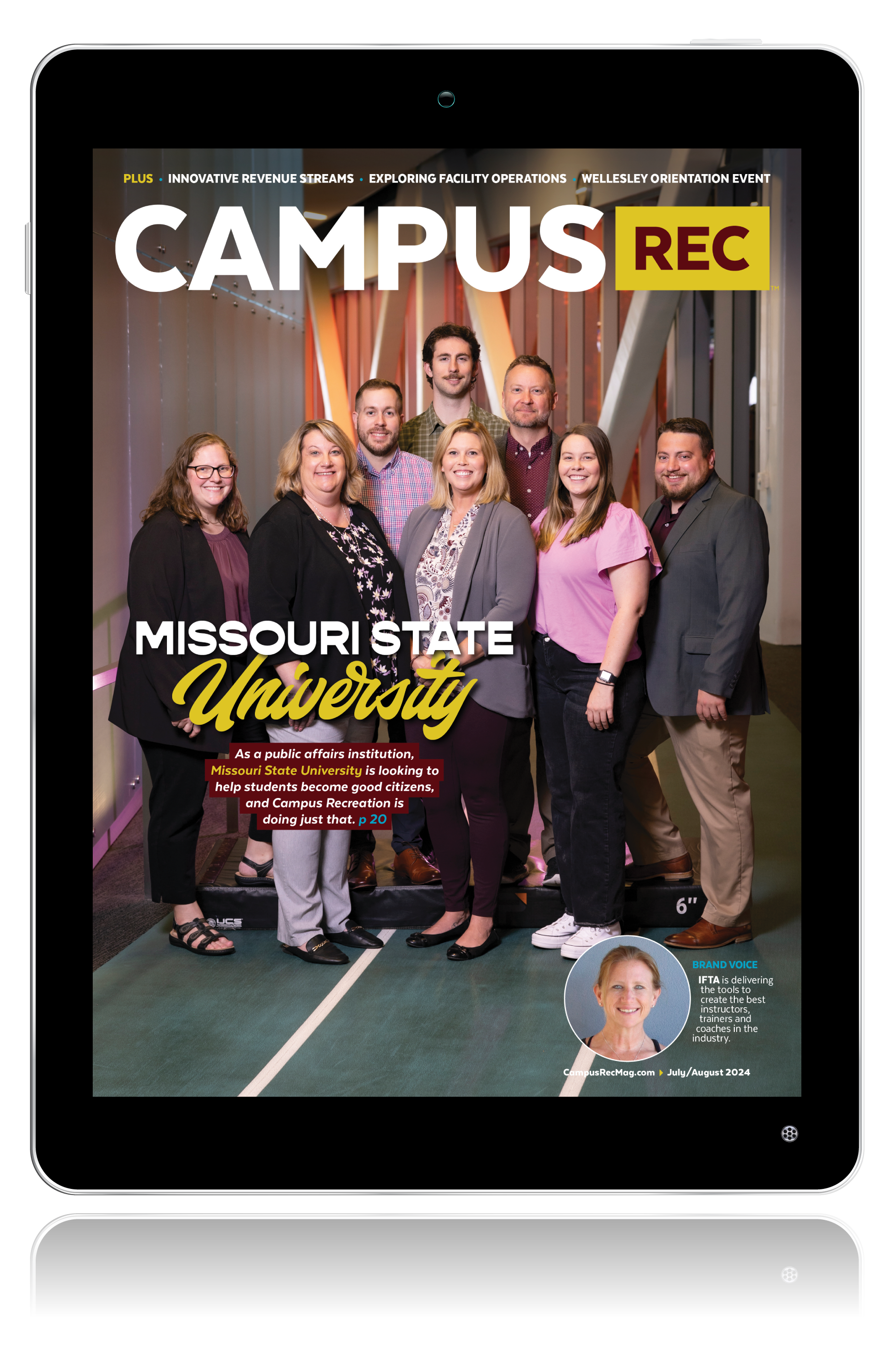COVID-19 didn’t invent burnout or toxic work cultures. As Julie Jungalwala said, it simply lifted a veil.
“We can no longer ignore what is right in front of us that we were choosing not to see,” said Jungalwala the co-founder and president of the Academic Leadership Group, a consultancy supporting leaders in higher ed.
The industry of campus recreation is facing issues of burnout and disenchantment. As leaders, what can you do to address the cultural challenges that have cropped up?
Jungalwala said first and foremost, stop adding stuff to employees’ plates. Ask instead what the department and team can discontinue in the short, medium and long term. “When folks are in crisis, you can’t add another thing on,” she said.
EXTRA CREDIT: Shannon Briggs shares three signs of burnout for those who teach or train in the industry and three ways she has learned to combat it.
In addition, Daniel Massick, a principal consultant for The Table Group — providing organizational health consulting, speaking and resources, including “The Five Dysfunctions of a Team” and “The Advantage” by founder Patrick Lencioni — said burnout isn’t a result of working hard. “It’s about working where you’re not especially gifted,” he said. “When we’re working where we want to work, it’s life-giving.”
So, initial steps with burnout are to stop piling onto people’s plates and reorganize to make sure staff are working in their strengths. But how do you combat the disenchantment with higher ed?

“Campus leaders need to create a culture that encourages flexibility, professional development, career advancement and opportunities for individuals to take vacation and step away from campus,” said Kasey Price, the director of Education Solutions at MGT Consulting Group.
In fact, Price noted campus recreation professionals may be motivated to stay in a position if multiple conditions are met:
- Increased job flexibility.
- Wage increase.
- Clearly identifiable paths to advancement.
- Ensuring a culture of self-care.
Thus, it’s key to rethink human development and bring human purpose to the center of your team. That means hearing what your team has to say.
However, Jungalwala noted sometimes leaders are afraid the discussion will bring up things they won’t be able to fix. “I would say we frame it to you’re not saying you’re going to fix everything,” she explained. “Step No. 1 is providing an opportunity for folks to open up. And then you see what’s possible, then you can really get into a more distributed leadership model.”

Price too agreed a culture of open dialogue is a must. Leaders need to be open to feedback and implementing changes based off of it. “As a leader, do not be afraid to take a step back and engage your team in a comprehensive review of your unit,” she said. “Include your team to identify actionable items that address the concerns and goals of your team. This effort can directly and efficiently support your team and improve services to students.”
EXTRA CREDIT: Addressing the conversation around mental health and the pressure to be perfect, based on a Forbes article by Paula Davis.
In fact, vulnerability-based trust is the foundation of a cohesive team. Massick said that idea is true to everything they do at The Table Group. “Just be real with the people on your team,” he said. “Real means, ‘I’m exhausted. I’ve got a lot of work to do. I don’t know how I’m going to do it.’”
And while being vulnerable with your team is key, Massick also said it is important to have a few friends, mentors or life coaches outside of their work team that leaders can go to.
What is currently happening in the industry isn’t working. As Price said, great organizational cultures are willing to change and evolve. That starts with leaders.
As such, Jungalwala gave one final question those in leadership need to ask themselves. “I would encourage your readers just to write themselves a note that if they could put themselves 10 years in the future, how would they like to say they showed up during this pandemic?” she said. “Write that story, and then live it.”










